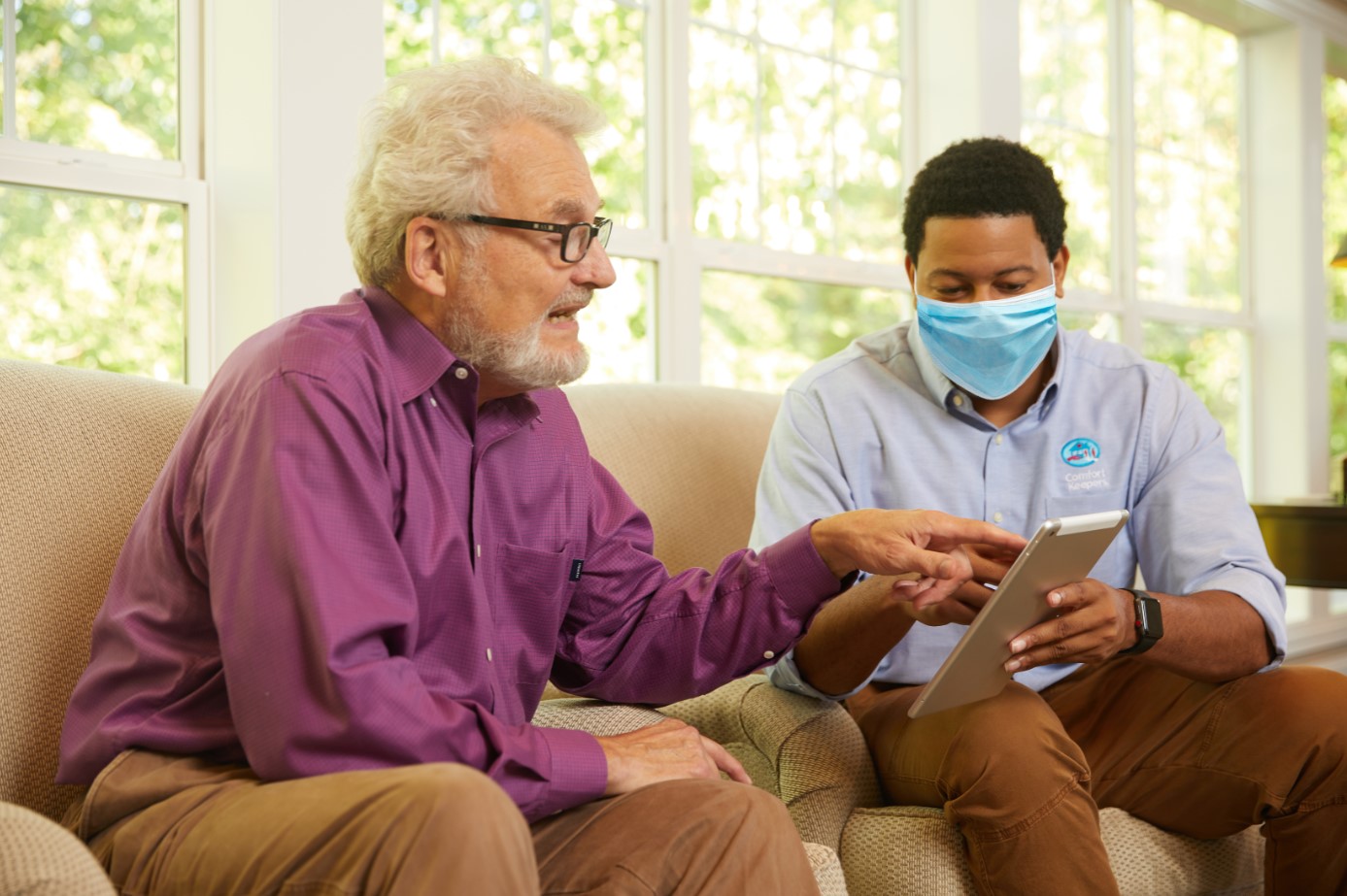When your senior loved one is reluctant to receive in-home care
Care at home can provide many positive experiences for older adults, and many seniors enthusiastically embrace the joy, support, and peace of mind that in-home companionship and care bring. But even when the need for in-home care is abundantly apparent to loved ones, for any number of reasons some older adults may push back on the realization that they may need a little extra help at home. This can be an especially stressful scenario for all involved, but one that can end with a positive outcome.
Here are five tips when a senior loved is reluctant to receive in-home care when it is needed:
- Acknowledge their feelings: Despite the urgency of the need for care, try to avoid statements that could be received as blaming, mandates or ultimatums. Taking the time up front to acknowledge and talk through what they are feeling, and providing reassurances that those concerns will be at the forefront of care can help your senior loved one regain a sense of confidence and control.
- Get at the truth behind their feelings: It is not uncommon for underlying fears to get in the way of receiving the care that is needed most. Anxiety about slipping in the shower, for example, or the memory of a prior bathroom fall might leave someone adamantly opposed to bathing. Ask questions, listen, be supportive, and together with your in-home care agency partner you can help develop a plan and put added safety measures in place that can help your senior loved one feel safe and in control.
- Keep safety first: Reinforcing the importance of safety as a primary care goal, and not on the medical conditions that may have triggered the need for care, may help remove feelings of blame or any finger pointing toward any individuals.
- Find a good match: You know your loved one best, and the things that bring them joy. And we know our Caregivers best, and what inspires them and where they excel. Together we can ensure a well-matched, highly trained Caregiver is assigned and ready to deliver the right level of care to ensure your loved one enjoys their Caregiver and is safe, engaged, and living to their full potential.
- Communicate consistently: Open communication and transparency of care can help you stay connected and in tune with the progress and wellbeing of a senior loved one, especially for those who may be more isolated at home. Secure online access to daily care logs and regular check-ins with your in-home care agency partner to share what Caregivers are seeing day-to-day can help ensure milestones are being met and determine if changes in the care plan are needed to address shifting care goals or lingering reluctant behaviors.
Reluctance to care can be frustrating, but involving your senior loved one and partnering with your in-home care agency provider every step of the way can help create the positive outcome that is needed.
 Reluctance to in-home care can be frustrating, especially when desperately needed, but a positive outcome can be had.
Reluctance to in-home care can be frustrating, especially when desperately needed, but a positive outcome can be had.







